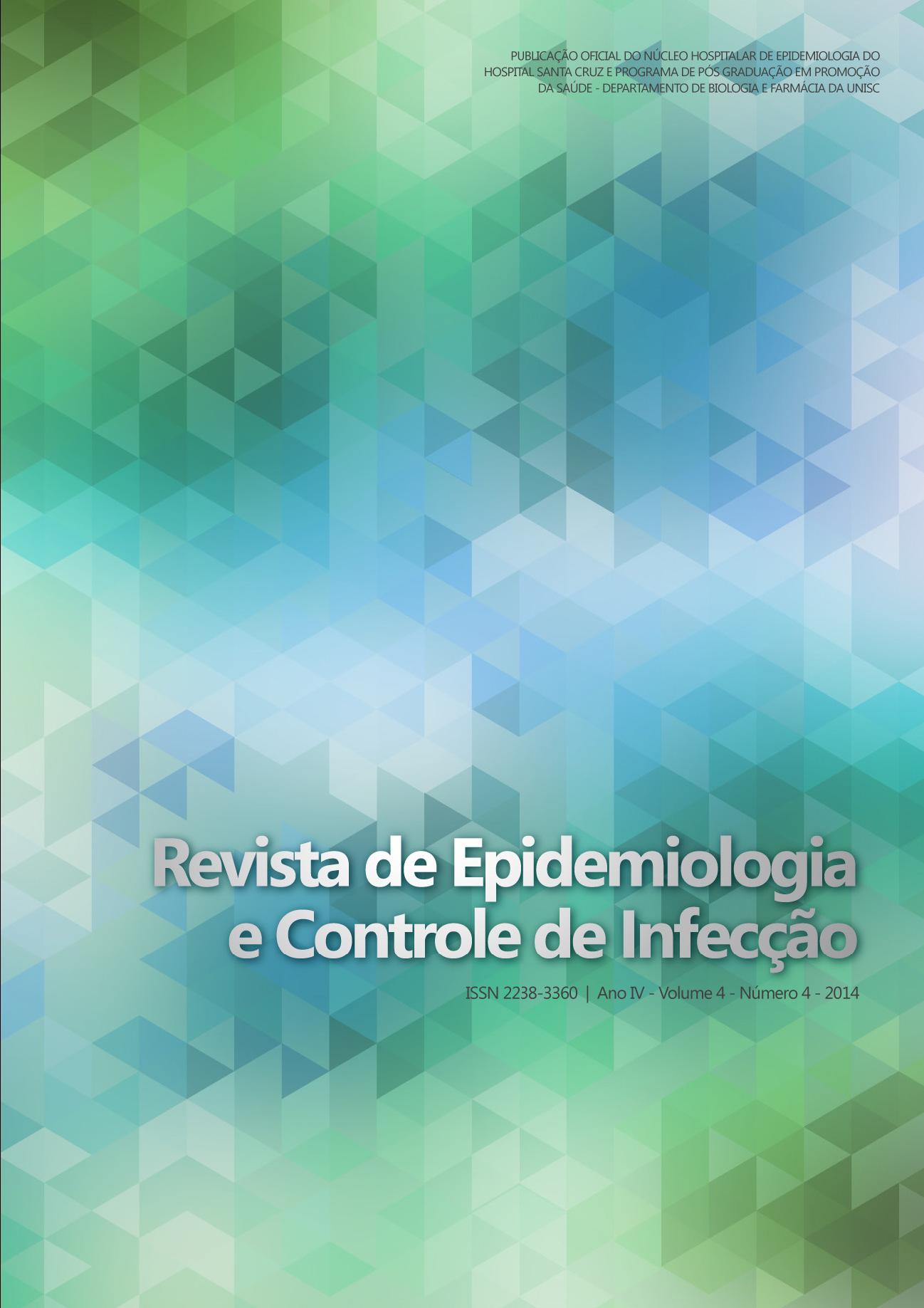Clinical epidemiological profile of dengue in Juscimeira – MT.
DOI:
https://doi.org/10.17058/reci.v4i4.5605Abstract
Backgound and Objectives: dengue presents itself as a serious public health problem in Brazil and worldwide. Increased morbidity and mortality care managers, civil society and health professionals. To characterize the clinical and epidemiology of dengue in the city of Juscimeira - MT between the years 2009 to 2013. Methods: Retrospective quantitative-descriptive study was conducted from the secondary analysis of the Information System of Notifiable Diseases. Results: 391 cases were registered, with a predominance of males (51.4%), the largest number of cases in 2010 (28.14%), the classic dengue was the most prevalent type. The most affected age group was between 20-34 years. Regarding socioeconomic and geographic variables, the most affected were those living in urban areas and high school. The prevalent diagnostic method was the laboratory. The serotype of DENV-I was the most common in the city and 100% of the sample were autochthonous. Conclusion: Dengue is endemic in Juscimeira - MT. The data come from the epidemiological meeting of the current literature, reflecting the upward condition of this disease not only in the state of Mato Grosso and Brazil. It is recommended that further studies be carried forward to this subject, so that they can contribute to the process of monitoring of this disease in the city, working with the technical teams, health professionals and local managers in planning activities to be undertaken in the medium and long term to reduce the prevalence of this disease. KEYWORDS: Public Health. Epidemiological surveillance. Primary prevention.Downloads
Downloads
Published
How to Cite
Issue
Section
License
The author must state that the paper is original (has not been published previously), not infringing any copyright or other ownership right involving third parties. Once the paper is submitted, the Journal reserves the right to make normative changes, such as spelling and grammar, in order to maintain the language standard, but respecting the author’s style. The published papers become ownership of RECI, considering that all the opinions expressed by the authors are their responsibility. Because we are an open access journal, we allow free use of articles in educational and scientific applications provided the source is cited under the Creative Commons CC-BY license.


